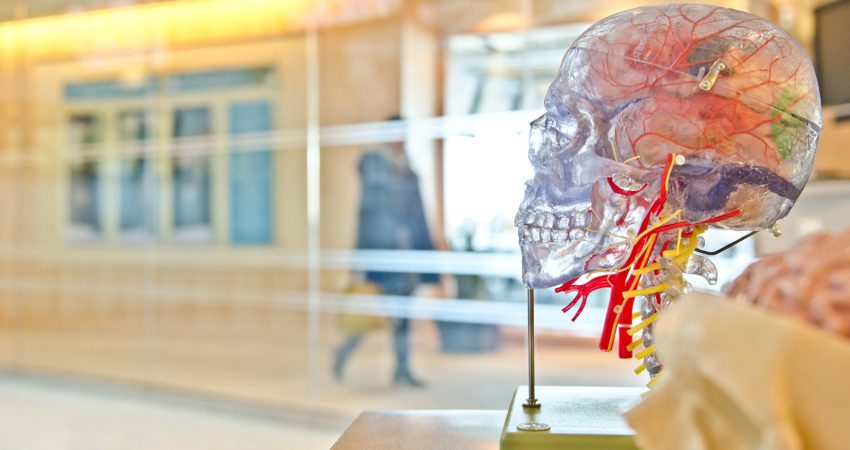
By Heather King - July 2014
PAPER CITATION
Yasri, P., & Mancy, R. (2014). Understanding student approaches to learning evolution in the context of their perceptions of the relationship between science and religion. International Journal of Science Education, 36(1), 24–45. doi:10.1080/09500693.2012.715315
Research has found that strong religious beliefs have a negative effect on individuals’ acceptance of biological evolution. Some people, however, including prominent scientists, appear able to hold religious and scientific beliefs concurrently. Yasri and Mancy explore the views of nine young people on religion and evolution. The paper discusses the students’ learning approaches and how they made sense of religious and scientific viewpoints. The authors argue that understanding the ways in which learners rationalize and reconcile their beliefs will help educators to guide and support learners more appropriately.
Research Design
The study involved nine students, aged 17 and 18, in the high school science and mathematics programme in Christian high schools in Thailand. The programme included study of evolution. Seven students were practising Christians, one was Buddhist, and one professed no religious beliefs. The students were interviewed for approximately one hour and asked about their understanding of both evolution and divine creation. They were also asked about their perceptions of the relationship between science and religion. The interview questions were open-ended to avoid bias. The interview transcripts were then analysed and the various conceptions clustered into categories.
Research Findings
Yasri and Mancy categorized the views of the nine students into five groups:
- Religion trumps science. Four students stated that they did not believe evolution. They found it impossible to reconcile the scientific and religious views. In rejecting evolution, these students sought to refute it and actively engaged in anti-evolution arguments. The authors describe the learning approach of these students as learning to falsify.
- Compartmental. One student was aware of the differences between the two viewpoints but was undecided about which perspective to choose. In order to cope in school, this student conformed to what was expected of her in different settings. Her learning approach can thus be described as contextual switching.
- Contrast. The Buddhist student and the student with no religious belief felt that science and religion address different kinds of questions that can be answered using different kinds of methods. They had learned to isolate the two domains and study them without conflict. Their approach to learning is thus described as differentiation.
- Complementary. One student did not consider religion and science to be mutually exclusive. Rather, he believed that science confirms the existence of God. He commented: When I am asked to explain about evolution, I do so according to the current findings of scientific evidence…. I keep in mind that it might be changed when new things are discovered in the future…. As the Bible says, God is the source of wisdom. He gave us wisdom in order to let us see His works. The researchers describe this student’s learning approach as one of refining. This approach seeks answers from one domain to support aspects of the other.
- Coalescence. The final category, represented by one student’s beliefs, is similar to the complementary approach, but it involves greater blurring of the distinction between the two forms of knowledge. The student commented that: I believe that science and religion have a similar foundation…. Accepting God’s creation requires personal belief. Likewise, no one has seen all of evolution, I mean from the beginning until now, so we need to rely on belief to believe that it occurred in the past and continues today. The authors define this learning approach as unification; that is, it attempts to create a single system of thought linking religious and scientific knowledge.
Implications for Practice
The range of views these students held and the sorts of learning approaches their views promote raise a number of issues for educators but also explain some potentially difficult situations.
The views of some students may promote conflict in learning settings as the students actively engage with content in order to refute it. Their actions are understandable, and thus manageable, if we acknowledge that these students are simply trying to build coherence in their personal worldview. In dismissing the theory of evolution as defective, they avoid the potentially more troubling process of reassessing their religious beliefs.
The authors also note that students who accept evolution in addition to their religious beliefs may lack a complete understanding of the science: Their religious beliefs may in some way colour their conceptions of evolution without their knowledge.
When discussing evolution with students who hold strong religious beliefs, educators need to walk a fine line. Many students, particularly those in the coalescence category, may benefit from understanding the differing forms of reasoning underpinning each form of knowledge. However, students who are undecided may be looking for an authority figure to tell them what to believe.
Clearly the pedagogical choices here need to be grounded in ethics. Perhaps they should be agreed upon by the institution rather than decided by the individual educator. The authors of this paper wonder whether educators should avoid the emotional upheaval caused by challenging strong beliefs by letting student belief fall where it may. Others may feel that this practice dodges an important issue and limits a young person’s engagement with scientific reasoning.
Further ethical argument is needed, as too is further research on how best to support learning in science when fundamental cultural beliefs are challenged.




